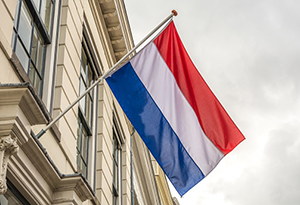In a Dutch study reported in JAMA Oncology, van de Poll-Franse et al found that a substantial proportion of patients with cancer had changes in care within 4 to 6 weeks after the first announcement of a COVID-19–related lockdown. Patients with cancer surveyed reported levels of quality of life, anxiety, and depression similar to levels in the general population.
Study Details
The study was a cross-sectional analysis of reports from 4,094 patients with cancer (48.6% response rate) in the Dutch Patient Reported Outcomes Following Initial Treatment and Long-term Evaluation of Survivorship (PROFILES) registry and an age- and sex-matched norm population (n = 979) who completed an online questionnaire between April and May 2020.

Photo credit: Getty
Key Findings
Among the 4,094 patients with cancer, a total of 3,611 received treatment (n = 886, 21.7%) or follow-up care (n = 2,725, 55.6%). Among the 3,611 patients, treatment or follow-up appointments were canceled for 390 patients (10.8%); 160 (18.1%) of 886 in treatment and 234 (8.6%) of 2,725 in follow-up had appointments replaced by a telephone or video consultation.
Among the 394 patients who had a telehealth consultation, 8.9%, 33.0%, and 58.1% considered their appointment not at all suitable, just a little suitable, or suitable for a telephone or video consultation, respectively. Nearly three-quarters of patients preferred a face-to-face meeting, but 38.3% were willing to have a future telephone or video consultation.
Systemic therapy, active surveillance, and surgery were associated with cancellation of treatment or follow-up appointments. Younger age, female sex, comorbidities, metastatic disease, worry about acquiring COVID-19, and receipt of supportive care were associated with replacement of in-person consultation with a telephone or video consultation.
Overall, 20.9% and 14.4% of patients and 22.3% and 14.7% of norm participants reported that the COVID-19 crisis made them less quickly contact their general practitioner and medical specialist/nurse, respectively, when they had physical complaints, questions, or concerns.
A higher proportion of patients with cancer vs norm participants were “quite a bit/very much” worried about acquiring SARS-CoV-2 (22.4% vs 17.9%, P = .01).
For patients with cancer vs norm participants, global quality of life (mean score on EORTC QLQ-C30 = 76.2 vs 74.8, P = .07) and incidence of anxiety (11.8% vs 11.2%, P = .01) and depression (9.9% vs 12.2%, P = .39) were similar. Norm participants more frequently reported loneliness (11.7% vs 7.0%, P = .009).
The investigators concluded, “Among patients with cancer in the Netherlands [surveyed], one in three reported changes in cancer care in the first weeks of the COVID-19 crisis. Long-term outcomes need to be monitored. The crisis may affect the mental well-being of the general population relatively more than that of patients with cancer.”
Lonneke V. van de Poll-Franse, PhD, of the Netherlands Comprehensive Cancer Organisation (IKNL), Utrecht, is the corresponding author for the JAMA Oncology article.
Disclosure: The study was supported by the Dutch Research Council. For full disclosures of the study authors, visit jamanetwork.com.

